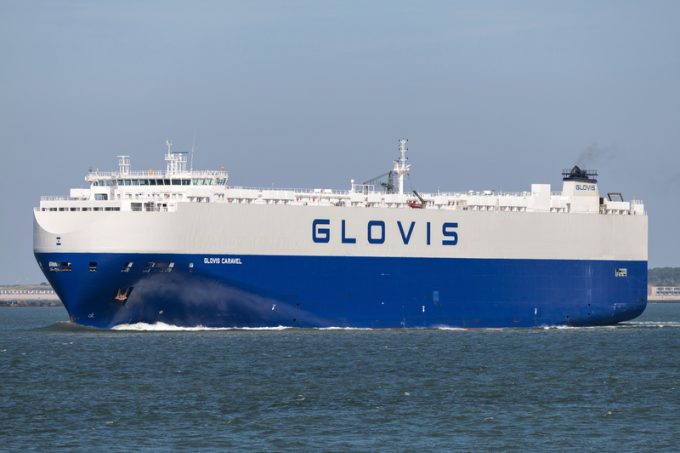China-South Korea ro-ro container traffic sinks to six-year low
Container volumes carried by South Korean ro-pax ships, or car ferries, sank to a six-year ...

Hyundai Glovis, the automaker’s logistics unit, is planning to build the largest pure car and truck carriers (PCTCs) in the world.
On Thursday, it unveiled plans to spend $1.84bn on a dozen LNG-fuelled, 10,800-car unit-capacity vessels, expected to be delivered in 2027 and in service for 20 years.
The ships will be focused on carrying compact cars and will be the first to be able to accommodate at least 10,000 per voyage.
Glovis said: “We want to have a stable fleet in the long-term and respond to international environmental regulations.”
A shortage of orders for new PCTCs, and the rebound in car demand, post-Covid has triggered an acute shortage of specialised vehicle transport capacity, which has resulted in carmakers, and even Glovis, to resort to moving vehicles in containers, an option made attractive by weakened box freight rates.
However, one expert has warned that some car-in-container options could be dangerous during loading and that damage rates can be as high as 25%.
Currently, Hoegh Autoliners’ 8,500-car unit Hoegh Trigger is the largest PCTC in service, although last week, Wallenius Wilhelmsen and its South Korean affiliate Eukor Car Carriers ordered up to a dozen 9,300-car unit PCTCs at China Merchants Jinling Shipyard, also for delivery from mid-2027.
Meanwhile, in response to highly publicised incidents of fires breaking out on PCTCs, especially on those carrying electric vehicles, Glovis announced last year that all its PCTCs would have special fire-fighting equipment, including fire covers and water mist lances.
Fire covers are placed on burning vehicles to prevent oxygen inflow, blocking heat and smoke and preventing flames from spreading, while water mist lances spray water on burning areas, including enclosed spaces.
Glovis added that CCTV would be installed on each deck of the ships, along with heat and smoke detectors.
And the company aims to achieve carbon neutrality in 2045, five years earlier than the global target of 2050.
Glovis also announced its revenue for the first nine months of the year was down 5% on 2022, to KRW19.17trn ($14.17bn), while net profit dipped 1.5%, to KRW820.34bn ($606.31m). Parent Hyundai Motor announced the same day that its Q3 23 earnings had more than doubled, to $2.4bn, due to robust sales of sports utility vehicles.
Comment on this article